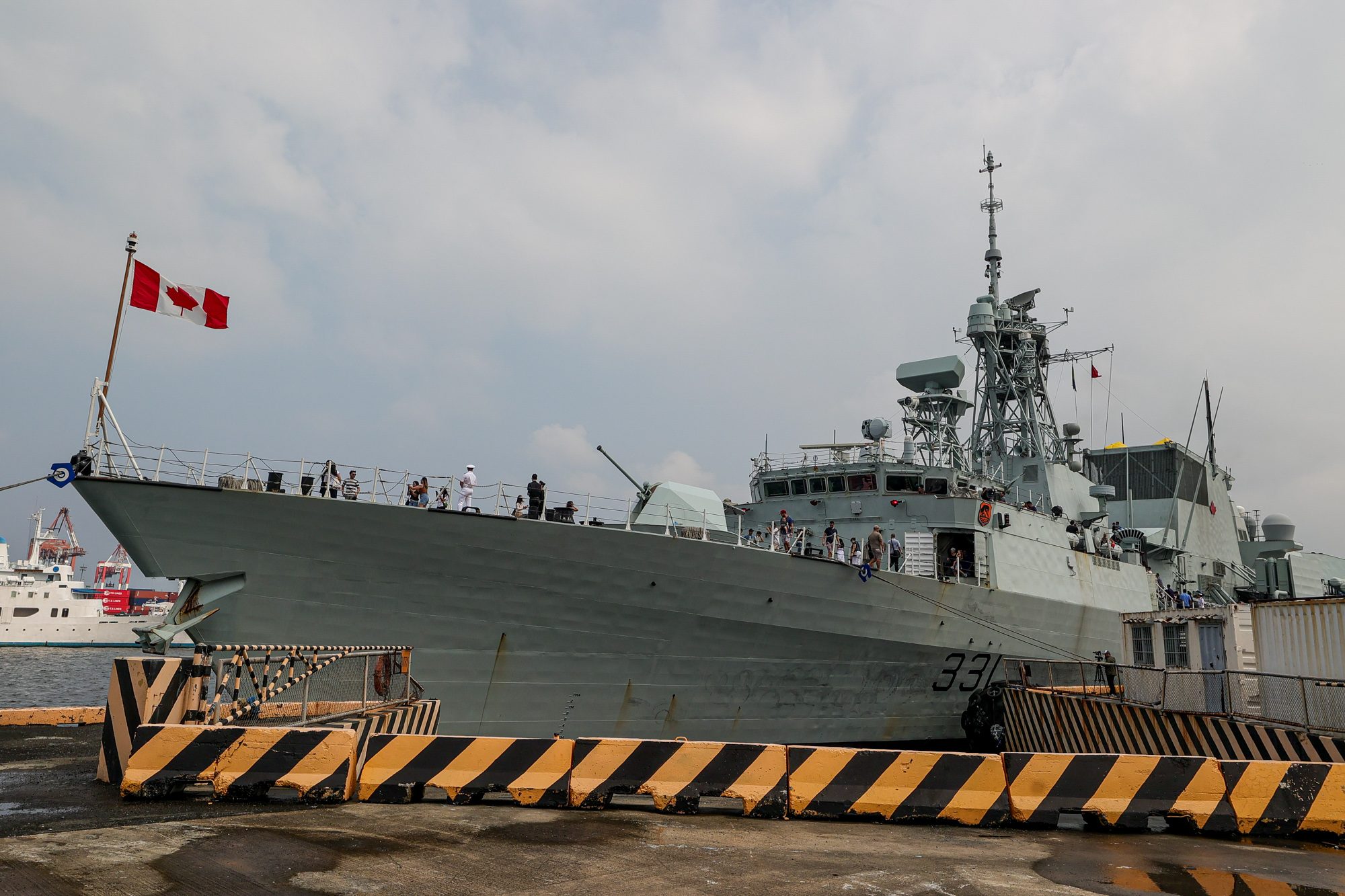
Canadian Ambassador to the Philippines David Hartman looks beyond geopolitics and economics in talking about why a stable Indo-Pacific is important. Back in Canada, where a sizable population of Filipino-Canadians live, talks of stability here is about ‘family.’
MANILA, Philippines – After calls to ports in South Korea and Japan, the HMCS Vancouver paid a visit to Pier 15 at the Manila South Harbor.
The ship arrived on Friday, September 29, and was opened to tours to a select public and the Philippine media the next day.
Vancouver will take part in “Samasama,” an annual joint Navy exercise between the Philippines and the United States. Other “like minded” nations will also be joining: navies from Japan, Australia, and the United Kingdom are joining subject matter expert exchanges and disaster response table-top events. New Zealand and Indonesia will also be present as observers.
Canadian Ambassador to the Philippines David Hartman, speaking to the media in a press conference inside the Vancouver, said its visit and participation in Samasama is Canada “doing in deeds what we said we would do in words.”

“Keeping in mind that stability in the Indo-Pacific is essential to global stability, Canada is increasing its engagement with regional partners to protect our natural interests and security,” said Commander Meghan Coates, commanding officer of the Vancouver.
In late 2022, Canada launched its Indo-Pacific strategy – its push to position itself as a “leader in promoting peace and security in the Indo-Pacific region, while preserving our role as a dependable partner,” said then-Canadian minister of defense Anita Anand.
Canada-Philippines defense ties
Canada’s engagements with the Philippines – particularly in the arena of defense – are increasing in very concrete ways in the coming months.
Ottawa is set to assign a permanent defense attache to Manila just in time for Samasama. Canadian embassy officials are also looking forward to the signing of a memorandum of understanding covering maritime affairs – among the expected provisions of which would include giving Manila access to Canada’s dark vessel detection system.
The system would give its users near real-time information on vessels present at sea.
This capability is important as tensions rise between the Philippines and China in the West Philippine Sea.
“We’ve made a number of statements over the last number of months as we’ve seen a rise in behaviors in the West Philippine Sea and the South China Sea that we have determined that are worrisome. Canada has not been alone in that. We’ve shared our comments, I think, with many members of the like-minded international community. Again, I will go back to the unclosed and the arbitrary, the arbitral decision. I think it’s very clear how we stand,” said Hartman.
A stable Indo-Pacific goes beyond talk of geopolitics and economics, Hartman explained. “We have a very large Filipino-Canadian community, right? About a million citizens. These aren’t just workers, temporary guests in our country. These are our citizens, our fellow citizens. And so ultimately what matters to Canadians happens at the dinner table, right?” he said.
“So what happens here matters to Canadians, and it matters to Canadians for all of the aforementioned reasons and more. But first and foremost, it matters from a familial perspective. This is a very, very important region,” he added.
The Vancouver also visited Manila in 2022. She will be in the Philippines until the end of Samasama, before she makes more port visits in the Indo-Pacific. Vancouver will be docked back in Canada by December 2023.
https://www.rappler.com/nation/canada-hmcs-vancouver-manila-visit-samasama-drills-september-2023/

No comments:
Post a Comment
Note: Only a member of this blog may post a comment.